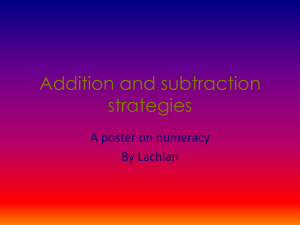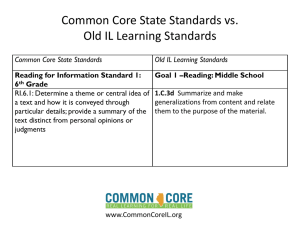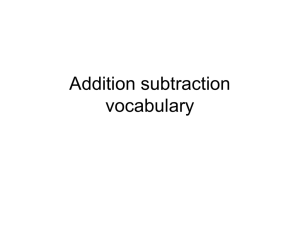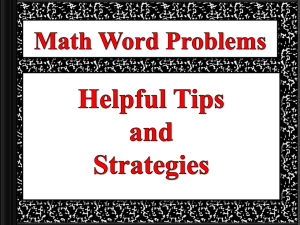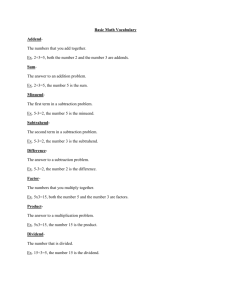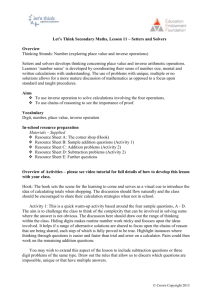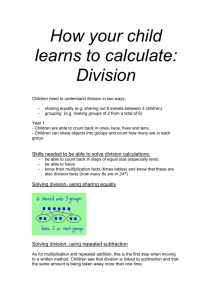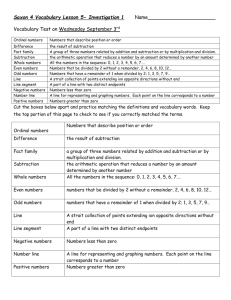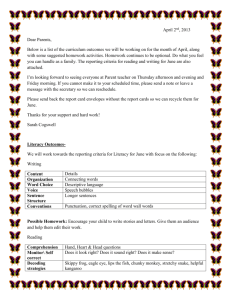Fact Families
advertisement
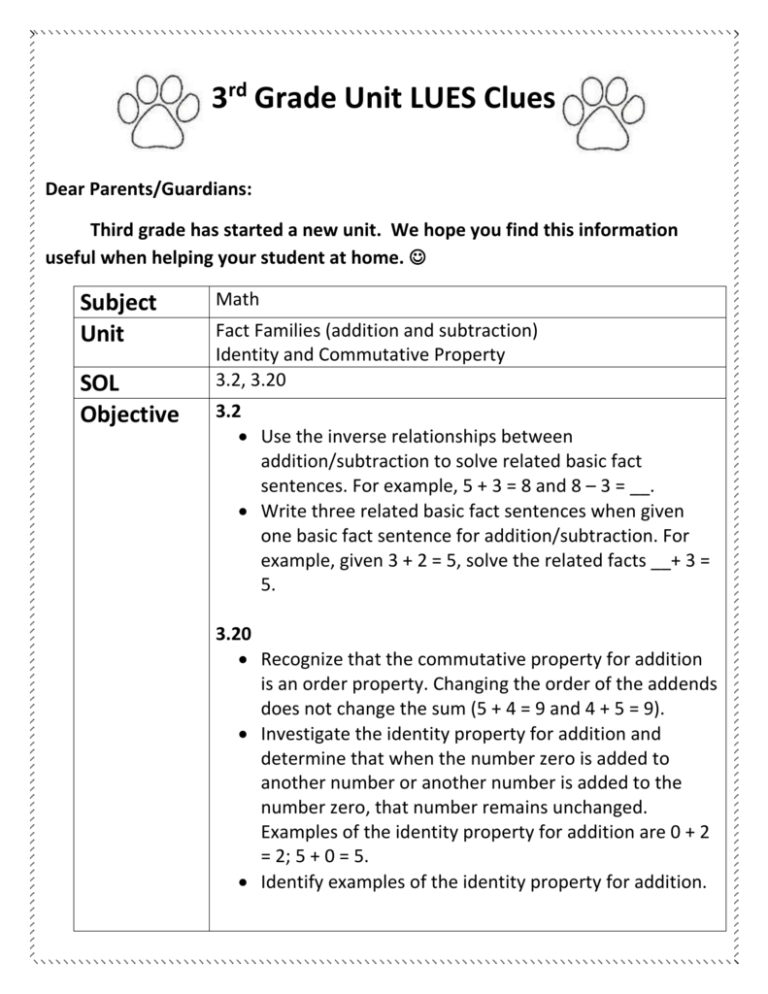
3rd Grade Unit LUES Clues Dear Parents/Guardians: Third grade has started a new unit. We hope you find this information useful when helping your student at home. Subject Unit SOL Objective Math Fact Families (addition and subtraction) Identity and Commutative Property 3.2, 3.20 3.2 Use the inverse relationships between addition/subtraction to solve related basic fact sentences. For example, 5 + 3 = 8 and 8 – 3 = __. Write three related basic fact sentences when given one basic fact sentence for addition/subtraction. For example, given 3 + 2 = 5, solve the related facts __+ 3 = 5. 3.20 Recognize that the commutative property for addition is an order property. Changing the order of the addends does not change the sum (5 + 4 = 9 and 4 + 5 = 9). Investigate the identity property for addition and determine that when the number zero is added to another number or another number is added to the number zero, that number remains unchanged. Examples of the identity property for addition are 0 + 2 = 2; 5 + 0 = 5. Identify examples of the identity property for addition. Important Vocabulary Inverse relationship Number sentence Related facts Addend Sum Property Identity property Commutative property Equal Strategies and Examples Opposite operations A group of numbers that includes a mathematical operation (addition, subtraction, multiplication, or division), along with either an inequality (< or >) or an equal sign. And just like a written sentence, it tells a fact. For example, 1 + 1 = 2. Facts that are related in some way. A number that is added to another number Answer to an addition problem Relationships that are always true in mathematical operations. The sum of 0 and any number is the same number. 8+0=8 You can add numbers in any order and the answer will always be the same. Same in number or amount, having the same mathematical value For a given set of numbers, there are relationships that are always true called properties. In third grade we focus on two properties of addition: Identity and commutative. Identity Property of addition: The sum of zero and any number is that same number. Example: 2+0=2 Commutative Property of Addition (order property): You can add numbers in any order and the sum will be the same. Example: 6+4=10, 4+6=10 6 + 4 = 10 4 + 6 = 10 To reinforce this concept, have students have students use house hold item such as macaroni. They can show a group of 6 macaroni and a group of 4 macaroni then add the groups to get 10. Then have your child write the fact (4+6=10). Have them switch the groups and write the new fact (6+4=10). Inverse relationship: There is an inverse relationship between addition and subtraction. If a math fact is considered, for example 3 + 7 = 10. Then the following are also true: 10 - 3 = 7 10 - 7 = 3 Similar relationships exist for subtraction, for example if 10 - 3 = 7. Then the following are also true: 3 + 7 = 10 7 + 3 = 10 Addition and subtraction facts are inverse operations because they are opposite. Generally, subtraction facts are harder for children to learn than addition facts. If a child knows that 6 + 9 = 15, and he or she sees the subtraction sentence 15 – 9 = __, the child can think, 9 added to __?__ equals 15? This use of thinking of the related addition fact when children encounter a subtraction fact they don't know should be encouraged. Children often find themselves either counting up or counting back to solve subtraction. If children learn the important inverse relationship between addition and subtraction, subtraction facts will become much easier. Related Facts For every addition fact, there is a related subtraction fact. Related facts are addition and/or subtraction number sentences that are alike in some way. For Example: 3+2=5 and 5-2=3 These number sentences are related because they both have 3, 2, and 5 in them. Knowing the answer to a number sentence will help you quickly figure out the answer to all related facts. Fact Family A Fact Family is a collection of related addition and subtraction facts, or multiplication and division facts, made from the same numbers. There can only be three numbers in every family, and the operations that are performed on them are related to each other. Example: The fact family for 3, 6, 9 3+6=9 6+3=9 9-3=6 9-6=3 Have students use a fact family house to show their facts. They can draw a triangle roof with the 3 numbers. Then draw a square to show the rest of the house a write the facts in the square. Sincerely, The Third Grade Team
